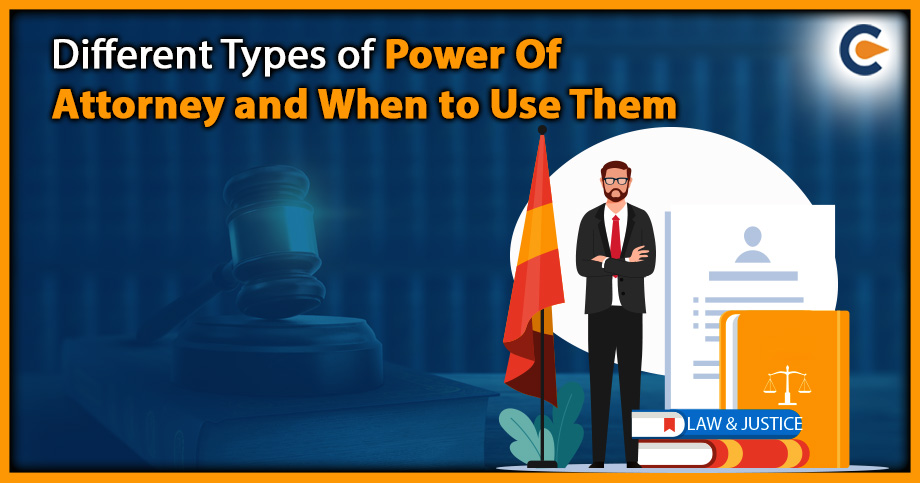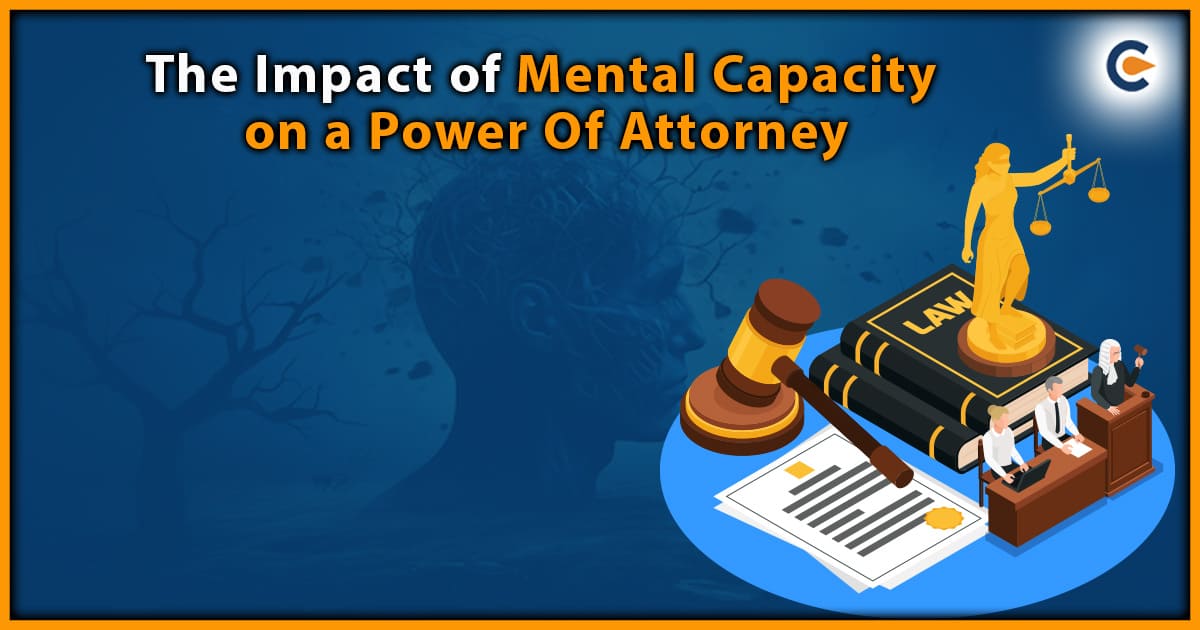A Power of Attorney (PoA) is a legal contract[1] that enables one person to act in another person’s place. The Powers of Attorneys Act of 1888 governs powers of attorney (PoAs). In most cases, registering a power of attorney is optional. However, registration is required if the power of attorney creates an interest in the relevant property.
The meaning and definition of a power of attorney can be a little confusing or a bit difficult to understand for the average person or layperson. A power of attorney simply means to grant or assign someone the authority to carry out a particular duty, such as the sale of real estate, legal representation, negotiations with potential buyers, etc.
Meaning of Power of Attorney (PoA)
The term Power of Attorney (POA) refers to a legal power that gives a specific person authority to act on behalf of another person. As such, a POA gives the agent the authority to act on behalf of the principal. The Power of Attorney have powers to make decisions about the grantor’s property, finances, investments, or health care.
Types of Power of Attorney (POA)
Based on the amount of powers assigned, there are four different types of Power of Attorneys.
Standard or Conventional Power Of Attorney
This document may alternatively be known as a general power of attorney (GPA) or limited power of attorney, depending on the extent of the powers conferred. This is only applicable to a specific liability and lasts only for a specific amount of time. The PoA agent has the authority to decide on matters both personally and professionally.
For instance, if the grantor is traveling or out of the country, they may authorize a PoA agent to execute a sale agreement on their behalf.
Durable or Sustainable Power Of Attorney
The durable POA is built or assigned to last a lifetime. Accordingly, the PoA agent is authorized to make decisions even if the grantor becomes incapable of making decisions. Generally, a durable power of attorney lasts until the death of the principal or until the principal revokes the power of attorney.
For example. The principal may appoint an agent to manage its investment portfolio.
Emerging or Springing Power of Attorney
Springing POA is utilised for a specified occasion, date, or circumstance as well as when the grantor becomes incapable.
For example, if a person is handicapped or stationed abroad, he can appoint a PoA agent to handle financial matters.
A Medical Power Of Attorney
The medical PoA is included in both the springing PoA and the durable PoA. Usually, this document is utilized when making health-related decisions. It should be noted that the medical PoA won’t go into effect until the client is awake (conscious) and in full mental and physical capacity.
For example, the grantor’s medical expenses may be paid by the PoA agent, but he cannot decide whether to turn off life support if it is required.
This Is How the POA Works
The principal has the option to download or purchase POA templates. The client must confirm that he or she is a resident of the state. The principal should not presume that the documents they have purchased are the appropriate kind since POA documents are very crucial. Before the POA procedure can start, the POA documents must be reviewed or verified thoroughly.
Finding a family law counsel in the administrator’s home state is the best method for them to start the procedure. It is possible to get in touch with a legal advisory office if the associated legal fees are much greater than the client’s financial capacity. The principal may also get in touch with a paralegal by visiting the Legal Services Corporation website.
Many states require the grantee’s signature to be notarized. Some circumstances also require the witness’s signature to be notarized. In addition, certain legal provisions are not universal. For example, there is no standardized format for the POA principal form.
The principal’s residence will affect the laws and procedures for the POA. Even though durable power of attorney is extensively used, certain powers, such as the following, cannot be transferred by the principal: the creation or modification of a will, a marriage, or a voting right.
An individual can choose another person to handle their property, legal, medical, and/or financial issues on their behalf while they are away using a Power of Attorney (POA).
Under the terms of the POA, the Power of Attorney may have limited or extensive responsibilities for making legal or other property (probationary), medical, and financial decisions.
The Power of Attorney may have a restricted or limited obligation for making legal or other property (probationary), medical, and financial decisions depending on the conditions of the POA.
As a PoA, the following things or actions are allowed:
- Financial and Real Estate Matters:
The PoA can –
- Buy, sell and rent a property
- Repair and maintain the principal’s house
- Monitor and manage bank accounts
- Make payment of bills
- Make or manage Investments
- According to defined rules can make a Purchase of gifts
- Medical / Health and Well-being:
An agent can-
- Plan the donor’s daily routine
- Make decisions about personal care and medical treatment
- Make decisions that serve and benefit the principal
As a PoA, the following things or actions are forbidden:
- Financial and Real Estate Matters:
The PoA cannot –
- Make purchases of large financial gifts.
- Make your own decisions about discretionary funds.
- The Principal’s bank account should not be confused with the Agent’s account.
- Abuse or misuse of position for personal gain
- Tax planning without proper oversight
- Medical / Health and well-being:
Things an agent can’t do-
- Cannot restrict the principal’s freedom
- If the client is physically or mentally stable, the agent cannot make any decisions.
Conclusion
By appointing Power of attorney Principal ensures that he has a strategy in place for managing his/her financial and personal affairs. If the need ever arises, appointing POA allows him more control over how that procedure will be handled. Power of attorney is considered valid if the principal himself relocates to a different state. Upon the death of the principal or grantor power of POA expires.
Read Our Article: How To Choose The Right Agent For Your Power Of Attorney (PoA)?











